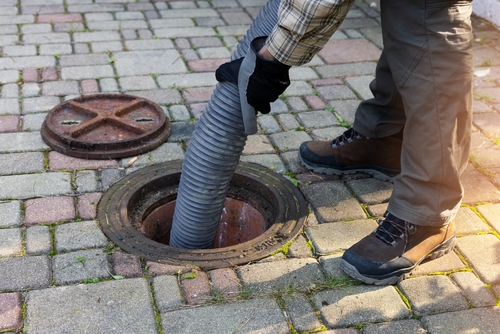The Environmental Impact of Proper Septic Pumping Practices in Commercial Settings
Proper septic pumping practices in commercial settings play a crucial role in environmental conservation and sustainability. Inadequate maintenance and neglect of septic systems can lead to environmental pollution, groundwater contamination, and habitat destruction. By understanding the environmental impact of septic systems and adopting proper pumping practices, commercial establishments can minimize their ecological footprint and protect the environment. In this blog post, we will explore the environmental impact of proper septic pumping practices in commercial settings and highlight the importance of responsible septic system maintenance.
Overview of Septic Systems in Commercial Settings
Septic systems are commonly used in commercial settings, such as restaurants, hotels, retail stores, and office buildings, to treat and dispose of wastewater. A typical septic system consists of a septic tank and a drain field, where wastewater is collected, treated, and dispersed into the soil. Proper maintenance of septic systems is essential to prevent backups, overflows, and environmental contamination. Commercial establishments are responsible for ensuring that their septic systems are properly maintained and comply with environmental regulations to protect public health and the environment.
Environmental Impact of Improper Septic Pumping Practices
Improper septic pumping practices in commercial settings can have significant environmental consequences. When septic systems are neglected or poorly maintained, several environmental issues can arise, including:
– Groundwater Contamination: Untreated wastewater from septic systems can leach into the soil and contaminate groundwater. Contaminated groundwater poses serious health risks to humans, animals, and plants and can lead to the spread of waterborne diseases.
– Surface Water Pollution: Overflowing septic tanks can release untreated sewage into nearby surface water bodies, such as rivers, lakes, and streams, leading to water pollution. High levels of nutrients, bacteria, and pathogens in surface water can harm aquatic ecosystems and wildlife.
– Soil Degradation: Excessive septic system discharges can degrade the soil quality and fertility, affecting plant growth and agricultural productivity. Nutrient-rich wastewater can disrupt the natural balance of soil ecosystems and lead to soil erosion and nutrient runoff.
– Habitat Destruction: Pollution from septic systems can have adverse effects on local ecosystems and wildlife habitats. Contaminated water bodies can harm fish, birds, and other aquatic organisms, disrupting the food chain and biodiversity.
The Importance of Proper Septic Pumping Practices
Proper septic pumping practices are essential to prevent environmental harm and maintain the health and integrity of commercial septic systems. By following responsible septic pumping practices, commercial establishments can:
– Prevent Pollution: Regular septic pumping and maintenance help prevent wastewater overflows, leaks, and spills that can pollute the environment. Proper treatment and disposal of sewage reduce the risk of groundwater contamination, surface water pollution, and soil degradation.
– Ensure Compliance: Adhering to regulatory requirements and environmental standards for septic systems is essential to protect public health and the environment. Regular septic pumping and inspections help commercial establishments comply with local, state, and federal regulations governing wastewater management.
– Preserve Natural Resources: Proper septic pumping practices promote the sustainable use of natural resources, such as water and soil. By maintaining septic systems in good working condition, commercial establishments can minimize water waste, conserve soil nutrients, and promote ecosystem health.
– Extend System Lifespan: Regular septic pumping and maintenance help prolong the lifespan of septic systems and prevent costly repairs or replacements. Proper care and upkeep of septic systems ensure their efficient operation and reduce the risk of system failures and environmental damage.
Best Practices for Proper Septic Pumping in Commercial Settings
To ensure proper septic pumping practices in commercial settings, consider the following best practices:
– Schedule Regular Pumping: Establish a routine septic pumping schedule based on the size of the septic tank, the volume of wastewater generated, and the number of occupants in the commercial establishment. Regular pumping helps remove accumulated solids and prevent system backups.
– Conduct Inspections: Periodic inspections of septic tanks and drain fields can help identify potential issues, such as leaks, cracks, or blockages, before they escalate. Inspections by qualified septic professionals can assess the health and functionality of septic systems and recommend necessary repairs or maintenance.
– Practice Water Conservation: Implement water-saving strategies, such as installing low-flow fixtures, fixing leaks, and promoting water-efficient practices, to reduce water usage and alleviate strain on septic systems. Conserving water helps prevent system overloading and promotes long-term sustainability.
– Properly Dispose of Waste: Dispose of hazardous or non-biodegradable materials, such as chemicals, grease, pharmaceuticals, and plastics, properly and avoid flushing them down the drains. These materials can disrupt the natural treatment process of septic systems and lead to system malfunctions.
Summary
The environmental impact of proper septic pumping practices in commercial settings cannot be overstated. By adopting responsible septic pumping practices and maintaining septic systems in good working condition, commercial establishments can protect the environment, conserve natural resources, and promote sustainability. Proper septic pumping helps prevent pollution, ensure regulatory compliance, preserve natural resources, and extend the lifespan of septic systems. By following best practices for septic pumping in commercial settings, businesses can minimize their ecological footprint and contribute to a cleaner, healthier environment for future generations.
Got Questions About Your Septic System? Let Us Help!
The Macken family has been serving western New York since 1968. Our company specializes in the installation, repair, and maintenance of septic systems. We can also help you deal with your restaurant grease trap. We have acquired a decade’s worth of experience and know all the ins and outs of keeping your septic system worry-free. The key to a well-functioning septic system is regular maintenance. While it is easy to be lulled into a false sense of security, make no mistake: eventually, a neglected septic system will require attention. So be proactive and give us a call today before you have a stinky situation to deal with.
Categorised in: Commercial Septic Tank Systems, Septic Systems, Septic Tank Pumping
This post was written by admin

